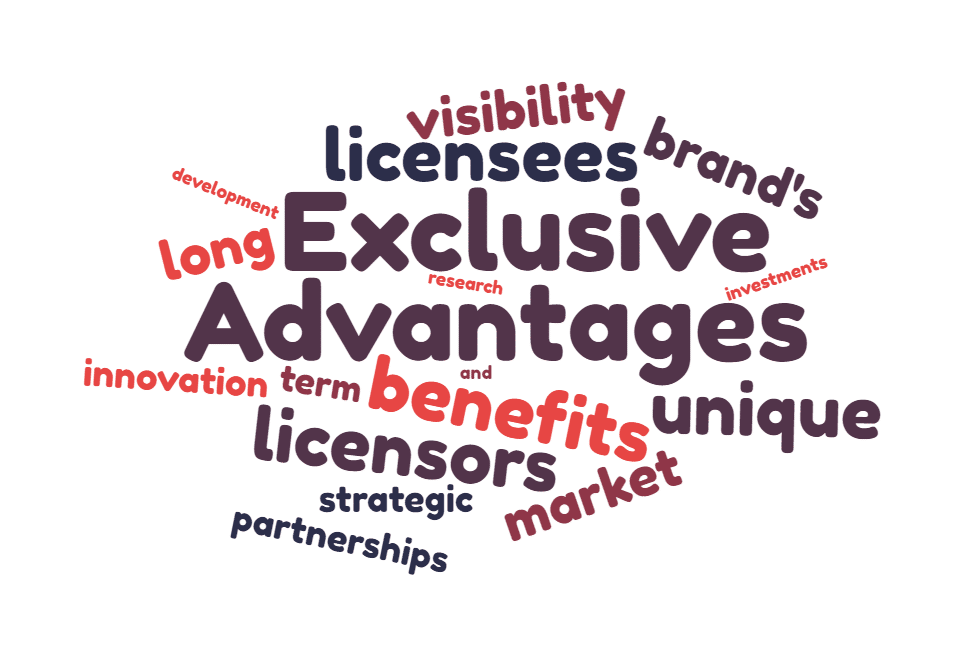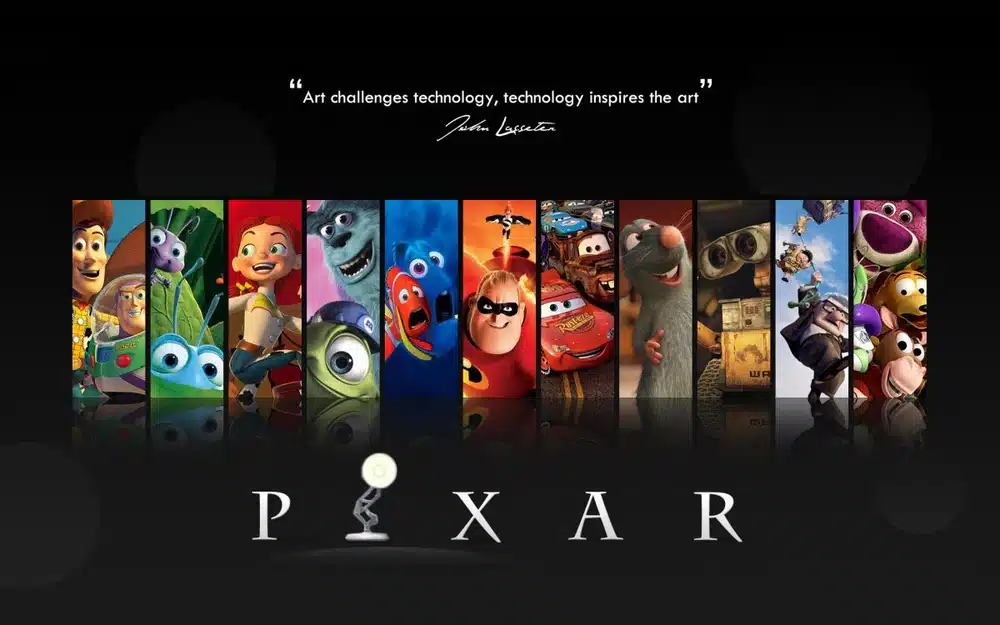
Dive into the world of exclusive licenses and discover how they can transform your business strategy and success.
The World of Exclusive Licenses
In the dynamic world of commerce and marketing, exclusive licenses represent a powerful strategic lever, offering unique opportunities for companies to stand out. They enable the creation of a distinctive competitive advantage. This article delves deeply into the nature of exclusive licenses, their strategic value, and best practices for negotiating and managing them effectively.
Understanding Exclusive Licenses
An exclusive license is an agreement where the licensor grants a licensee the exclusive right to use a brand, patent, copyright, or know-how in a specific area. This exclusivity means that no one other than the licensee can exploit the concerned intellectual property in the agreed territory or market segment.
A perfect example is Nike, which used exclusive licenses to develop innovative product lines in collaboration with renowned athletes like Michael Jordan for the Air Jordan line, thus strengthening its market presence and brand image.



Advantages of Exclusive Licenses
Exclusive licenses offer considerable benefits for both licensors and licensees. They enable a unique market positioning and can lead to significant innovations in various sectors.
1. Exclusive Access
One of the main advantages of exclusive licenses is exclusive access to valuable innovations or creations. This exclusive access provides a major competitive edge. For example, in the technology sector, a company could obtain exclusive rights to a new technological invention, allowing it to stand out in the market.
2. Revenues for the Licensor
Exclusive licenses also generate significant revenue streams for the licensor. Take, for instance, a luxury fashion brand granting an exclusive license for a perfume line. This not only enhances the brand’s visibility but also generates substantial revenue through the sales of these exclusive products.
3. Other Advantages
Other advantages of exclusive licenses include strengthening the brand image, creating long-term strategic partnerships, and the ability to target niche markets. These agreements can also stimulate innovation and encourage investments in research and development.

Strategies for Negotiating Exclusive Licenses
Negotiating an exclusive license is a crucial process that requires meticulous attention to detail and strategic planning. A well-thought-out and informed approach can lead to a successful and mutually beneficial partnership. Without a proper strategy, companies risk ending up with unbalanced agreements, potentially leading to conflicts, revenue losses, or damage to their brand image.
Defining the Scope of the License
A critical step in negotiating an exclusive license is precisely defining the scope of the license. This includes clear identification of the rights granted, geographical restrictions, and sub-licensing conditions. A vague or imprecise definition of terms can lead to costly misunderstandings and legal disputes.
For example, a pharmaceutical company must precisely define the geographical markets where the drug can be sold under an exclusive license, as well as any possible exceptions or limitations. This clarity is essential to avoid ambiguities and future conflicts.

Performance and Quality Standards
Another important aspect is setting clear expectations for quality standards and marketing efforts. Both parties need to agree on high standards to maintain the brand’s integrity and ensure the success of the partnership. This ensures that the licensed products or services adhere to the brand’s vision and standards, thereby maintaining its prestige and reliability.
For instance, if a luxury fashion company grants a license to a manufacturer to produce a clothing line, precise quality standards must be established to maintain the brand’s reputation.
Disadvantages and Risk Management
Navigating exclusive licensing agreements requires careful consideration of potential risks. Although these agreements offer many advantages, they can also present specific challenges that must be managed prudently to avoid negative impacts on the business.
Risks of Over-Dependence
Dependence on a single partner in an exclusive licensing agreement can limit a company’s ability to diversify its operations. This situation creates a risk in the event of sudden changes in business relationships or the partner’s performance.
For example, if an exclusive partner encounters financial problems or reputation issues, this could have a direct knock-on effect on the licensing company, affecting its revenues and market position.
Loss of Control Over Intellectual Property
Granting exclusive rights can also mean a partial loss of control over how intellectual property is used. It is crucial to define terms of use clearly to ensure that the intellectual property is utilized in a way that aligns with the company’s values and goals. Vague definitions or a lack of oversight can lead to undesirable uses, potentially harmful to the brand’s image.
Practical Cases and Case Studies
Explore concrete examples of successful exclusive licenses in various industries, offering insight into strategies, challenges, and innovative solutions.
Starbucks and Nestlé: A Strategic Agreement
The exclusive licensing agreement between Starbucks and Nestlé in 2018 perfectly illustrates how an exclusive license can be mutually beneficial. Nestlé acquired the exclusive rights to sell Starbucks products outside its cafes, allowing Starbucks to expand its global reach without diluting its brand.
This strategy enabled Nestlé to enrich its portfolio with a globally renowned coffee brand, while providing Starbucks with a new growth avenue.

Marvel's Association with Sony for Spider-Man

The example of Marvel and Sony around the Spider-Man character highlights a successful exclusive license in the entertainment industry. Sony holds exclusive rights for Spider-Man movies, while Marvel retains the rights for merchandise and other media.
This strategic division allowed Sony to develop a lucrative film franchise, while Marvel benefited from the extension of its cinematic universe.

Disney and Pixar: Merging Creativity and Technology
The relationship between Disney and Pixar, which began with an exclusive licensing agreement and culminated in the purchase of Pixar, offers a fascinating look at how exclusive licenses can evolve.
This collaboration allowed Disney access to Pixar’s cutting-edge animation technology, while Pixar benefited from Disney’s marketing power and distribution. Together, they produced revolutionary films that redefined the animation genre.

The Keys to Success with Exclusive Licenses
Exclusive licenses represent a powerful strategic tool in the commercial arsenal of businesses. They offer not only a distinct competitive advantage but also the possibility of a deeply enriching and profitable partnership. However, navigating the world of exclusive licenses requires a balanced approach, combining vigilance, strategy, and insight.
A deep understanding of the dynamics of exclusive licenses is crucial. This includes a careful evaluation of potential benefits, such as exclusive access to markets or technologies, and recognition of risks, such as over-dependence on a single partner or market diversification limitations. The key is to achieve a balance where the benefits outweigh the challenges.
Careful negotiation of license agreement terms is also critical. Each agreement must be tailored to meet the specific needs of the business while preserving flexibility for the future. Terms should be clear, precise, and include mechanisms to manage potential disagreements or changes in circumstances.
Finally, awareness of the implications and responsibilities inherent in an exclusive license agreement is essential. Businesses must remain vigilant, responsive, and ready to adapt to market developments and changes in partnership relations.
In summary, when managed with discernment and strategy, exclusive licenses can open doors to unprecedented opportunities, strengthen market positions, and catalyze growth. For businesses looking to fully leverage these agreements, the focus should be on rigorous analysis, intelligent negotiation, and proactive management of licensing relationships.

Monte-Carlo Lifestyle is a brand that encapsulates all the collections in its portfolio, with the labels ‘Monaco’ and ‘Monte-Carlo, that is registered globally for an extensive line of consumer goods.
Subscribe for our monthly newsletter to stay updated.
which supplier and need to make the complete setup, can be added later ?

















